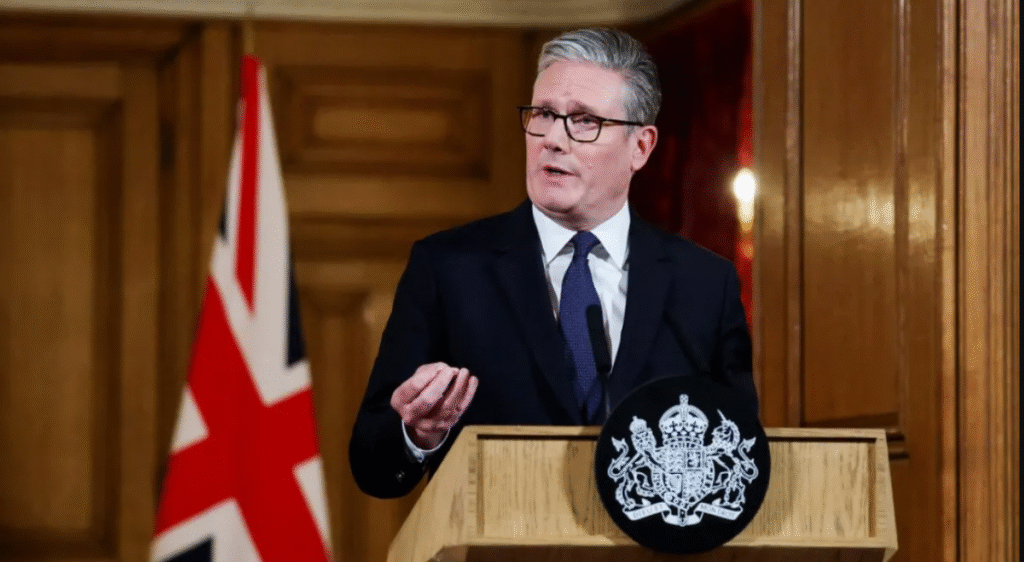UK Prime Minister Keir Starmer said Britain plans to recognize a Palestinian state in September, unless Israel takes clear action. That includes agreeing to a ceasefire in Gaza, allowing full humanitarian aid, committing to no annexation in the West Bank, and working toward a sustainable two-state solution.
Strong Conditions Set by Prime Minister Starmer
Starmer laid out several clear conditions that Israel must meet to avoid UK recognition of Palestine. These include ending military operations in Gaza, allowing at least 500 humanitarian trucks per day into Gaza, formally halting any West Bank annexations, and committing to a peace process that leads toward a lasting two‑state settlement.

At the same time, he called on Hamas to release hostages, disarm, and step away from governing Gaza. Foreign Secretary David Lammy added that Britain carries a moral responsibility due to its historical role in the region and that recognizing Palestine could help rescue the two‑state solution.
A Big Foreign Policy Change for the UK
Historically, the UK has supported a Palestinian state only as part of a negotiated peace agreement. No previous government had set a firm timetable. Starmer’s announcement marks a major shift. Earlier on July 29, France pledged to recognize Palestine as well, and other European nations like Spain, Ireland, and Sweden have been moving in the same direction.
This change also responds to growing public pressure and rising frustration over scenes of starvation and suffering in Gaza. Starmer told his Cabinet he convened an emergency meeting calling ministers back from recess to discuss these urgent issues.
Israel Reacts While UK Pushes Global Momentum
The Israeli government immediately rejected the UK’s announcement. It accused Britain of “rewarding Hamas” and said that formal recognition would weaken peace efforts, including hostage negotiations. Israeli officials warned such a move could undermine ceasefire initiatives and push back against future stability.
Meanwhile, Starmer is urging other world leaders—especially at the upcoming UN General Assembly—to join the UK and France in recognizing Palestine. He aims to build international momentum in support of diplomatic progress toward peace.
If Israel meets the conditions like ceasefire, aid corridors, and a return to negotiations the UK may hold off on recognition. Otherwise, Starmer has signaled the UK will move forward, aligning with countries like France and potentially Canada or Netherlands. Such a shift could reshape international diplomacy around the Gaza crisis.


 No Jobs for Foreign Students in US, UK, Canada?
No Jobs for Foreign Students in US, UK, Canada?  Teen Admits Killing Schoolmate but Denies Murder
Teen Admits Killing Schoolmate but Denies Murder  UK Poverty Crisis 14.3 Million Struggle Including 4.3 Million Children
UK Poverty Crisis 14.3 Million Struggle Including 4.3 Million Children  Record 8064 Migrants Cross English Channel in 2025
Record 8064 Migrants Cross English Channel in 2025  France May Recognize Palestine as a State
France May Recognize Palestine as a State  King Charles and Queen Camilla met Pope at the Vatican
King Charles and Queen Camilla met Pope at the Vatican